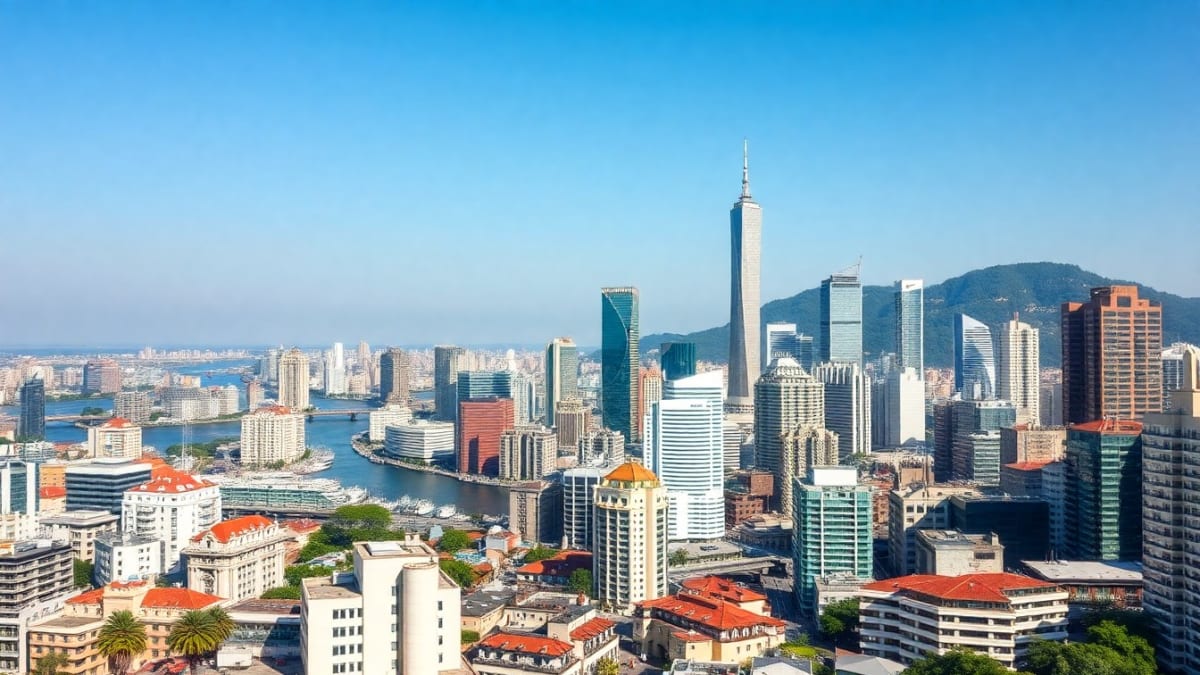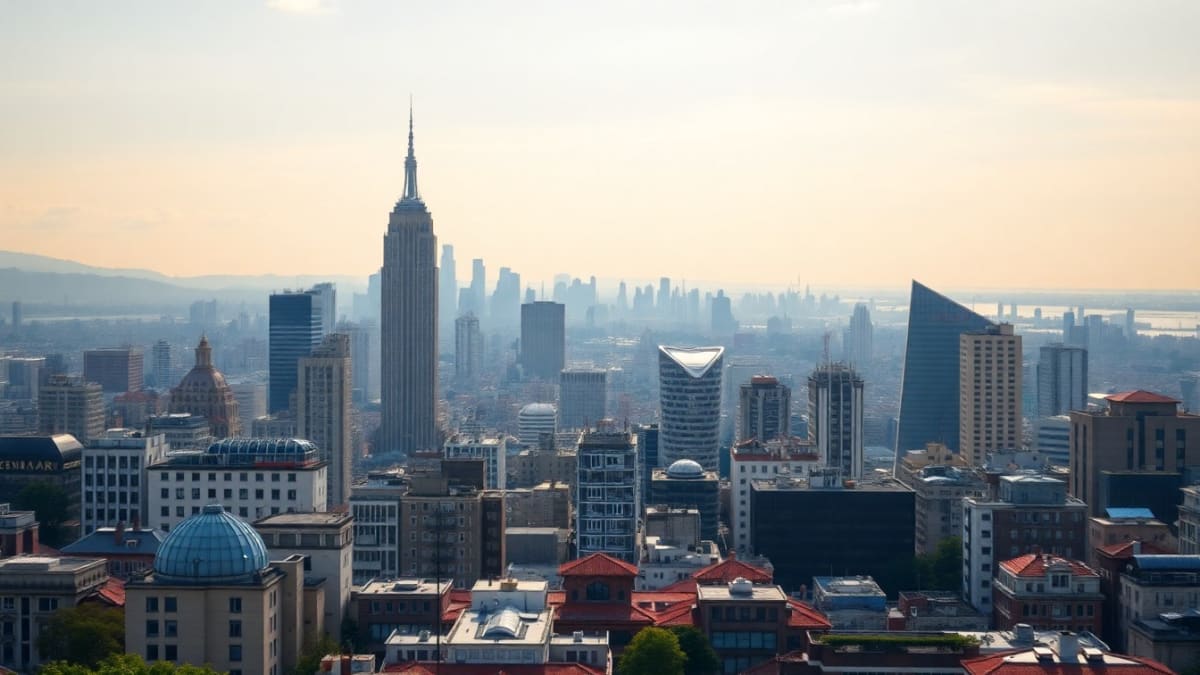Best Digital Nomad Visa Options for 2025: Complete Guide
Discover the best digital nomad visa options for 2025, including updated requirements, costs, and processing times for top destinations worldwide.


Best Digital Nomad Visa Options for 2025: Complete Guide
The digital nomad landscape has exploded in 2025, with over 50 countries now offering specialized visas for remote workers. Whether you're seeking EU access, tax benefits, or affordable living costs, choosing the right visa can make or break your nomadic journey.
This comprehensive guide breaks down the top digital nomad visa options for 2025, including updated requirements, real costs, and insider tips from successful applicants.
Top Digital Nomad Visa Destinations for 2025
Spain: The European Gateway
Spain's digital nomad visa remains one of the most sought-after options in 2025, despite recent requirement increases.
Key Requirements:
- Monthly income: €2,763 (increased from €2,646 in 2024)
- Annual income: €33,156
- Additional €1,035/month for spouse or adult dependent
- Additional €346/month per child
- Private health insurance coverage
- Proof of remote work arrangement
Processing Details:
- Application fee: ~€80
- Processing time: 1-3 months
- Visa validity: 1 year, renewable
- Path to permanent residency: Yes, after 5 years
Spain's visa provides access to the entire Schengen zone and offers a clear pathway to permanent residency. The Spain Digital Nomad Visa 2025: Complete Guide & Requirements provides detailed application steps and requirements.

Portugal: The Affordable EU Option
Portugal continues to attract digital nomads with its competitive requirements and excellent quality of life.
Key Requirements:
- Annual income: €2,800 (significantly lower than Spain)
- Monthly equivalent: ~€760
- Health insurance required
- Criminal background check
- Proof of accommodation
Processing Details:
- Application fee: €83
- Processing time: 60-90 days
- Visa validity: 1 year, renewable up to 5 years
- Tax benefits: NHR program for new residents
Portugal's lower income threshold makes it accessible to more digital nomads, while the Non-Habitual Resident (NHR) tax program can provide significant tax savings. For detailed guidance, check our Portugal Digital Nomad Visa 2025: Complete Guide & Requirements.
Estonia: The Digital Pioneer
Estonia's Digital Nomad Visa offers the fastest processing in Europe and strong digital infrastructure.
Key Requirements:
- Monthly income: €3,500
- Employment with company registered outside Estonia
- Health insurance coverage
- Clean criminal record
Processing Details:
- Application fee: €80
- Processing time: 15 days (fastest in EU)
- Visa validity: 1 year
- Digital services: Fully online application process
Dubai, UAE: The Tax Haven
Dubai's virtual working program attracts nomads seeking tax advantages and world-class infrastructure.
Key Requirements:
- Monthly income: $5,000 USD
- Valid employment contract or business ownership
- Health insurance
- COVID-19 vaccination certificate
Processing Details:
- Application fee: $287
- Processing time: 48 hours
- Visa validity: 1 year
- Tax benefits: Zero personal income tax
Emerging Digital Nomad Destinations Similar to the Netherlands Digital Nomad Visa, this visa offers competitive benefits.
Malaysia: DE Rantau Nomad Pass
Malaysia launched its digital nomad program in 2022 and has gained popularity for its affordability and strategic Asian location.
Key Requirements:
- Annual income: $24,000 USD
- Valid passport with 12+ months validity
- Health insurance
- Clean criminal record
Processing Details:
- Application fee: $200
- Processing time: 7-15 days
- Visa validity: 12 months
- Extension: Up to 12 additional months
Barbados: Welcome Stamp
Barbados pioneered the digital nomad visa concept and continues to attract remote workers with its Caribbean appeal.
Key Requirements:
- Annual income: $50,000 USD
- Health insurance
- Clean criminal background
- Proof of employment or business ownership
Processing Details:
- Application fee: $2,000 for individuals, $3,000 for families
- Processing time: 7 days
- Visa validity: 12 months
- Tax benefits: No local income tax on foreign earnings

Key Factors to Consider When Choosing If you're considering other European destinations, check out the France Digital Nomad Visa.
Income Requirements Comparison
| Country | Monthly Income | Annual Income | Additional for Dependents |
|---|---|---|---|
| Spain | €2,763 | €33,156 | €1,035/spouse, €346/child |
| Portugal | ~€760 | €2,800 | Varies by family size |
| Estonia | €3,500 | €42,000 | Not specified |
| Dubai | $5,000 | $60,000 | Family packages available |
| Malaysia | ~$2,000 | $24,000 | Extension for families |
| Barbados | ~$4,167 | $50,000 | $1,000 additional for families |
Processing Times and Success Rates
Based on 2024-2025 data, success rates exceed 80% when applicants meet all requirements and provide proper documentation. Common rejection reasons include:
- Insufficient income documentation
- Unclear remote work arrangements
- Missing health insurance coverage
- Incomplete criminal background checks
Tax Implications
Tax residency rules vary significantly between countries. Key considerations:
- Spain: Tax resident after 183+ days, worldwide income taxed
- Portugal: NHR program offers reduced tax rates for 10 years
- Estonia: Tax on Estonian-sourced income only
- Dubai: Zero personal income tax
- Malaysia: Territorial tax system, foreign income generally not taxed
- Barbados: No tax on foreign-sourced income
Application Success Strategies For a similar visa program, see our comprehensive Portugal D7 visa passive income guide.
Documentation Best Practices
- Income Proof: Provide 3-6 months of bank statements, employment contracts, and client agreements
- Remote Work Evidence: Employment letter confirming remote work arrangement or business registration documents
- Health Insurance: Comprehensive coverage meeting minimum requirements
- Criminal Background: Apostilled documents from all countries of residence
- Professional Presentation: Organized, translated documents increase approval odds
Common Pitfalls to Avoid
- Underestimating processing times: Apply 2-3 months before intended travel
- Insufficient income documentation: Freelancers need detailed client contracts
- Ignoring tax implications: Consult tax professionals before applying
- Inadequate health coverage: Ensure coverage meets specific country requirements

Regional Considerations and Living Costs You might also be interested in our guide to the Best Tax Havens for Digital Nomads in 2025:.
Europe (Spain, Portugal, Estonia)
Advantages:
- Schengen zone access
- High-quality healthcare
- Strong digital infrastructure
- Path to permanent residency
Living Costs (Monthly):
- Spain: €1,500-2,500 (varies by city)
- Portugal: €1,200-2,000
- Estonia: €1,000-1,800
Middle East/Asia (Dubai, Malaysia)
Advantages:
- Tax benefits
- Strategic location for Asian markets
- Modern infrastructure
- Cultural diversity
Living Costs (Monthly):
- Dubai: $2,500-4,000
- Malaysia: $800-1,500
Caribbean (Barbados)
Advantages:
- English-speaking
- No foreign income tax
- Tropical lifestyle
- Time zone alignment with US East Coast
Living Costs (Monthly):
- Barbados: $2,000-3,500
Future Trends and Predictions
Industry experts predict several trends for digital nomad visas in 2025:
- Increased Competition: More countries launching programs to attract remote workers
- Higher Income Thresholds: Requirements rising with inflation (Spain's 4.4% increase exemplifies this trend)
- Streamlined Processes: Digital-first applications becoming standard
- Tax Harmonization: EU considering unified approach to nomad taxation
- Long-term Pathways: More visas offering routes to permanent residency
Frequently Asked Questions
Q: Can I switch between different digital nomad visas? A: Yes, most digital nomad visas don't restrict future applications to other countries. However, tax residency implications should be considered when moving between jurisdictions.
Q: What happens if my income drops below the requirement after approval? A: Requirements typically apply at application time. However, renewal applications will reassess income levels, so maintaining qualifying income is important for extensions.
Q: Do digital nomad visas lead to permanent residency? A: Some do. Spain and Portugal offer clear pathways to permanent residency after 5 years. Estonia and other EU countries have varying requirements for long-term residence.
Q: Can I work for local companies with a digital nomad visa? A: Generally no. Digital nomad visas specifically require remote work for foreign employers or international clients. Local employment typically requires different visa categories.
Q: How do I prove remote work as a freelancer? A: Freelancers need client contracts, invoices, business registration documents, and bank statements showing international payments. A portfolio of work and client testimonials can strengthen applications.
Q: Are there age restrictions for digital nomad visas? A: Most countries don't impose age limits, but some require minimum work experience (typically 2-3 years in your field) which indirectly creates age considerations.
Q: What about health insurance requirements? A: All programs require comprehensive health coverage. EU countries often specify minimum coverage amounts (€30,000+ for Schengen visas), while others require coverage for specific medical services.
Q: How long does the application process really take? A: Processing times vary significantly: Estonia (15 days), Dubai (48 hours), Malaysia (7-15 days), while EU countries typically take 1-3 months. Factor in document preparation time, which can take several weeks.
Q: Can I bring my family on a digital nomad visa? A: Most programs accommodate families with additional income requirements. Spain requires €1,035/month per adult dependent and €346/month per child. Family application fees are typically higher.
Q: What are the renewal success rates? A: Renewal rates exceed 90% when income requirements are maintained and no legal issues arise. Some countries like Portugal allow multiple renewals, while others may require brief exits before reapplication.
For those considering Portugal specifically, our Portugal Digital Nomad Visa 2025: Complete Application Guide provides step-by-step instructions for the application process.
Conclusion
The digital nomad visa landscape in 2025 offers unprecedented opportunities for remote workers seeking international mobility. Spain and Portugal remain top choices for EU access, while emerging destinations like Malaysia and Dubai provide compelling alternatives with unique benefits.
Success depends on careful planning, thorough documentation, and understanding the long-term implications of your choice. Whether you prioritize tax benefits, cost of living, or pathway to residency, there's likely a digital nomad visa that fits your specific needs and circumstances.
Start your application process early, consult with tax professionals for complex situations, and consider connecting with digital nomad communities in your target destination for practical insights and support.